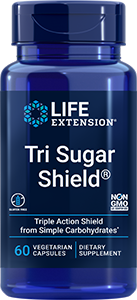|
|
Gulf War illness symptoms reduced by CoQ10 |
|
|
|
Tuesday, November 11, 2014. The November 1, 2014 issue of the journal Neural Computation published the results of a double-blinded trial which uncovered a benefit for supplementation with coenzyme Q10 (CoQ10) in relieving symptoms experienced by veterans of the 1990-1991 Gulf War.
"Gulf War illness is not the same as post-traumatic stress disorder or traumatic brain injury, signature illnesses of later deployments, which are caused by psychological and mechanical injury, respectively," stated lead researcher Beatrice Golomb, MD, PhD, who is a professor of medicine at the University of California San Diego School of Medicine. "Evidence instead links Gulf War illness to chemical exposures, such as pesticides or pills given to soldiers to protect them from possible nerve agents. These chemicals can damage mitochondria, which generate the energy our cells need to do their jobs. When these powerhouses of the cells are disrupted, it can produce symptoms compatible with those seen in Gulf War illness."
Dr Golomb and her colleagues randomized 46 veterans diagnosed with Gulf War illness to receive CoQ10 or a placebo daily for an average of three and one half months. General health and illness related symptoms were rated before and after treatment.
Among participants who received 100 mg CoQ10, 80% experienced improvement in physical function that was associated with increasing blood levels of the coenzyme. Headache, fatigue with exertion, irritability, memory and muscle pain also improved among those who received CoQ10. The researchers plan to test a "mitochondrial cocktail" containing CoQ10 and other nutrients in a future study.
"The statistical significance of these benefits, despite the small sample size, underscores the large magnitude of the effects," Dr Golomb observed. "Mounting evidence suggests findings in Gulf War illness are relevant to toxin-induced health problems in the civilian sector, so what we learn by studying health challenges of these veterans, will likely benefit others."
|
|
|
| |
 |
|
What's Hot |
|
|
|
Lowered oxidative stress and reduced DNA damage linked to specific supplements |
|
|
|
 |
|
| |
A study described in an article published online on August 5, 2013 in Cancer Epidemiology, Biomarkers & Prevention reveals an ability for several dietary supplements to help prevent oxidative stress and DNA damage.
The current study utilized data from 209 men and women who participated in the VITamins And Lifestyle (VITAL) biomarker study, which enrolled residents of western Washington between 2000 and 2001. Interviews and questionnaires administered following enrollment ascertained the frequency of use for glucosamine, chondroitin, fish oil, methylsulfonylmethane (MSM), coenzyme Q10, ginseng, garlic, ginkgo and saw palmetto. Measurement of urinary 8-isoprostane and prostaglandin F2 alpha (PGF2 alpha) assessed oxidative stress levels, and blood samples were analyzed for white blood cell DNA damage and DNA repair capacity.
Researchers Elizabeth D. Kantor of Fred Hutchinson Cancer Research Center and her colleagues found a reduction in urinary PDF2 alpha, indicating lower amounts of oxidative stress, among those who reported consuming 14 or more tablets glucosamine or chondroitin per week. For glucosamine users, the reduction was 40% lower, and for chondroitin users, the reduction was 47% lower in comparison with nonusers. The use of fiber supplements was associated with a 43% reduction in PDF2 alpha, and for those who used coenzyme Q10, there was a 58% lower level of DNA damage compared to nonusers.
"Our results suggest that glucosamine, chondroitin, and fiber supplements are associated with reduced oxidative stress, while CoQ10 supplementation was associated with reduced DNA damage," the authors conclude. "Further research is needed to better understand the associations between use of these popular supplements and oxidative stress/DNA damage, as oxidative stress and DNA damage have been suggested to play a role in several diseases. Our results provide evidence of a potential mechanism by which these supplements may affect disease risk, warranting further research on these potential preventives."
|
|
|
| |
 |
|
Life Extension Clinical Research Update |
|
|
|
Treatment–resistant depression
South Florida location
You, or someone you know, may qualify for a clinical study of treatment-resistant depression sponsored by the Life Extension Foundation in conjunction with the UM Miller School of Medicine in Miami, Florida. Depression can be debilitating and may interfere with a person's ability to work, sleep, study, eat, and enjoy once-pleasurable activities. The results of this research will be used to help develop strategies for improving depression.
Study objective:
Assess the effectiveness of magnesium sulfate infusion on treatment-resistant depression patients over a period of 8 days.
To qualify:
- You must be between 21 and 65 years of age.
- Have mild to moderate treatment-resistant depression.
- Have had failure of clinical improvement after 6 weeks of a standard treatment.
Your involvement:
- You will make 5 visits over a period of 8 days.
- You will receive the investigational study medication, blood tests, and physical exams.
- Upon completion of the study you will receive compensation up to $400 for time and travel.
Register For This Study
Or call 1-866-517-4536
Compensation:
- Study Product
- Blood Tests
- Physical Exams
- Up to $400 for Time and Travel
- Referral Bonus Available: $50*
https://www.lifeextension.com/clinicalresearch/ClinicalTrials.htm
|
|
|
 |
|
Highlight |
|
|
|
Life Extension Magazine November 2014 Issue Now Online |
|
|
On the cover
George Hamilton: Secrets from one of Hollywood's leading men, by Donna Caruso
Reports
The youth restoring benefits of NAD+, by Scott Rahway
Phytoceramides: Skin rejuvenation from the inside out, by Michael Downey
Enhance endothelial health: How pomegranate protects against atherosclerosis, by James Harrison
The 2014 Genetics of Aging and Longevity conference held in Sochi, Russia, by Ben Best
Rejuvenate aging skin on the hands
Departments
As we see it: Creating immortal genes, by William Faloon
In the News
Wellness profile: Massive database planned to crack the secrets of aging, by Michael Downey
Ask the doctor: Breast cancer screening alternatives, by Michael Smith, MD
Author interview: Toxin Toxout, by Astrid Kessler, with Rick Smith and Bruce Lourie
Journal abstracts
Endothelial Defense, Skin Ceramides, Longevity and Nicotinamide Riboside |
|
|
|
|
|
 |
|
Health Concern
Chronic fatigue syndrome |
|
|
 |
|
| |
Chronic fatigue syndrome (CFS) is a complicated condition characterized by profound fatigue that persists for more than six months. It is often accompanied by cognitive difficulties, muscle and joint pain, depression, poor sleep quality, or other nonspecific symptoms (Cella 2011; Jones 2011; Ciccone 2010). Between one and eight million people in the United States are believed to have CFS (Jason 2013; CDC 2012; Dinos 2009).
CFS often occurs concurrently with other conditions that cause similar symptoms. Studies have reported that US Centers for Disease Control and Prevention (CDC) CFS criteria (see Diagnosis section) have been met by 88% of people with multiple chemical sensitivity (Ziem 1999), 20-70% of people with fibromyalgia (Afari 2003), and 15.7% of veterans in the US VA Gulf War Registry (Kipen 1999). Given the similarities between CFS and fibromyalgia, and their high degree of concurrence, studies on fibromyalgia are often viewed as potentially relevant to CFS, and integrative practitioners frequently apply similar approaches to the two conditions.
Mitochondria are organelles within cells that are responsible for most of the cell's supply of energy in the form of a chemical called adenosine triphosphate (ATP), which is used throughout the body (Myhill 2009). Research suggests dysfunction of mitochondria and mitochondrial enzymes may be associated with chronic fatigue and fibromyalgia. The pro-inflammatory cellular milieu seen in many individuals with CFS can impair mitochondrial functions and may reduce production of ATP in cells. An electron microscopy study of muscle biopsies from 50 CFS subjects reported that 80% had mitochondrial degeneration (Behan 1991).
|
|
|
| |
 |
|
Latest Products |
|
|
|
 |
Tri Sugar Shield™, 60 vegetarian capsules
Item #01803
|
|
|
|
Life Extension® Tri Sugar Shield™ contains the following three nutrients:
Sorghum bran extract:
- Balances the rate of sugar manufacture in the liver (gluconeogenesis).
- Promotes insulin sensitivity.
- Regulates PPAR-gamma, a metabolic thermostat controlling glucose metabolism.
- Regulates the enzyme alpha-amylase, which in turn controls the release of sugar found in starch.
Mulberry leaf extract:
- Targets the alpha-glucosidase enzyme to regulate conversion of starch into glucose.
- Supports glucose transporter GLUT4 that moves glucose out of the bloodstream and into muscle and liver cells.
- Promotes insulin sensitivity.
Phloridzin:
Phloridzin helps maintain healthy blood sugar levels, among those in the normal range by:
- Targeting carrier protein SGLT1, in turn helping to block the absorption of glucose into the bloodstream.
- Targeting carrier protein SGLT2, in turn supporting glucose elimination via urine.
|
|
|
|
 |
Magnesium Capsules, 500 mg, 100 vegetarian capsules
Item #01459
|
|
|
|
Magnesium is one of the body's most important minerals. It is required as a cofactor in hundreds of enzymatic processes within cells. It helps maintain normal muscle and nerve function, keeps heart rhythm steady, promotes healthy cardiovascular function, supports a healthy immune system, and keeps bones strong. Magnesium also helps maintain blood sugar and blood pressure levels already within normal range, and it is known to be involved in energy metabolism and protein synthesis.
Magnesium is a major factor in relaxing the smooth muscles within the blood vessels, thereby reducing peripheral vascular resistance and promoting a healthy cardiovascular system. Magnesium also affects circulating levels of norepinephrine and the synthesis of serotonin and nitric oxide.
Magnesium positively influences the bone mineral matrix and its ability to metabolize minerals needed for repair and rebuilding. Scientific literature documents the need for a wide range of minerals, including calcium and magnesium, that are vital to maintaining strong, healthy bones.
Moreover, there is strong evidence that dietary magnesium intake and supplementation improves the metabolic profile. Magnesium has been shown to beneficially impact insulin resistance, serum lipid profiles, inflammation, endothelial function, oxidative stress and platelet aggregability. |
|
|
| |
 |
|
Related Life Extension Magazine® Articles |
|
|
|
|
|
|
|
|
|








